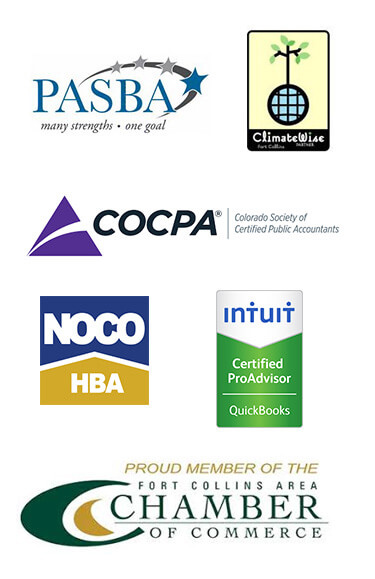Beginners in business are focused on creating viability, and providing goods and services to generate revenue while limiting any personal expenses. Most independent contractors or freelance professionals provide their time and labor with limited overhead, but as your business grows, you may want to consider some of the advantages of changing your business classification. For tax purposes, your business will be defined as one of the following: a sole proprietorship, a partnership, or a Limited Liability Corporation (LLC). If you are thinking about turning your Colorado small business into an LLC, you’ll need the professional help of an experienced CPA that can provide tax help for your incorporation.
Initial incorporation can be costly, but the long-term benefits can save you thousands and protect yourself and your family from the ongoing financial liability of running a business. Here are just a few of the reasons why incorporation might be the right business move to make:
- Protecting Your Personal Assets
The main reason why business owners choose to turn a small enterprise into a corporation is the protection it provides for personal assets. Sole proprietors and partnerships are personally liable for any debts or damages incurred by the business. In an LLC, your personal assets are considered separate and distinct from your business finances. This can help protect you from debt collection and lawsuits.
Although this is often the primary reason to incorporate, the protection under an LLC is usually “limited”. For debt financing and for legal liability, a certain amount of risk is often assumed by the business owner and their personal assets. This also allows for business owners to use personal assets as collateral for business financing. Business owners that create a corporation, will then be responsible for paying separate individual and business income taxes. To avoid this, some small business owners are eligible for S corporation status. This limits your tax obligation but also limits liability protection from debt or lawsuits.
- Protecting Your Brand
When you form a sole proprietorship as an independent contractor or freelancer, your business name is somewhat inconsequential. Upon forming an LLC, you will have name protection that lasts the life of your corporation. This prevents other area businesses from capitalizing on your creative brand or the optimal visibility that your name might provide. Conversely, you will need to form an original name for your LLC and may not be able to use the name you have chosen for your sole proprietorship or partnership.
- Increasing Your Credibility
There are certain advantages to doing business with a corporation. For vendors or capital investors, incorporations are considered to be financially stable institutions that have consistent revenue and liability protections. For consumers, the existence of your “.Inc” or “LLC” at the end of your name can promote confidence and the presumption of reliability. For potential partners, the benefits of joining forces with an established LLC are enticing for tax purposes and for the limits to liability exposure.
- Providing Permanence
Depending on how you structure your corporation, your business can enjoy an unlimited life. This helps to continue protecting your personal assets even after the business is dissolved. Certain types of LLCs – those structures as an S corporation – will not have this benefit, so it is important to take into account which type of incorporation will benefit you the most in the long term.
- Providing Tax Flexibility
Many business owners choose to incorporate it for tax reasons. Although the initial filing cost is often too high for some small business owners, and the “double” taxation of running a corporation may seem initially costly, the long-term tax benefits and flexibility make incorporation the right option for many growing businesses. Corporations are allowed certain deductions and credits that may not be available to other small business filers. This includes employee benefit contributions, philanthropy, and many types of business expenses.
Your accountant can provide you with the specific benefits and potential disadvantages of incorporating it for tax purposes. Certain businesses can benefit from filing as “pass-through” entities, where business revenue is taxed to all shareholders or partners in a distributive manner. This can help prevent “double” taxation and reduce the individual tax liability imposed on individuals.
According to the Small Business Association, there is no clear right answer for any one business. If you are thinking about forming a corporation, you’ll need the tax help that only experienced CPAs can provide. Turning your Colorado small business into an LLC can, however, be a major step in growing your business and attaining the financial stability you’ll need to succeed for years to come.
Image courtesy of stockimages




